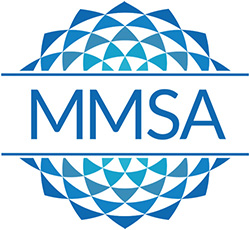For Immediate Release:
Thursday, September 19, 2019
With the help of a $1.5 million grant from the National Science Foundation, the Maine Mathematics and Science Alliance (MMSA) will be working to support rural teachers and students from the Gulfs of Maine and Mexico as they integrate computational thinking into their innovative, community-based citizen science projects.
Building on the success of MMSA’s online citizen science community, WeatherBlur, program staff will partner with the data literacy company, Tuva Labs, and rural teacher leaders to create instructional materials and professional development to enhance the computational data analysis skills of teachers and students. Students will collaborate across geographic divides to co-design a scientific question investigation with scientists online based on common phenomena they observe in their local communities, collect data and use the computational thinking skills embedded in this project to analyze this data and generate solutions.
The Computational Thinking Through Citizen Science in the Classroom project will work closely with K-8 educators to co-design learning modules that highlight computational thinking skills that can be gained by integrating with math standards (such as statistics and data literacy) that can be explored citizen science initiative in the classroom. Computational thinking breaks down a problem into solutions that can be effectively carried out by an information processing agent (human or machine, or more generally, by a combination of both) and is an important component of the recently adopted Next Generation Science Standards and recent statewide initiatives promoting equitable access to computer science education throughout Maine.
Congresswoman Chellie Pingree shared “During this time of digital interconnectivity, we must encourage students to learn through collaboration. This grant from NSF will help link students from Maine with other rural and coastal students in the South, encouraging us to better understand both the Gulf of Maine and the Gulf of Mexico and the relationship between the two. If not for institutions like the MMSA and NSF, we might not have the opportunity to discover how our ecosystems and environments are connected. This is a fascinating project to further our knowledge and exploration of the world around us–my congratulations to MMSA, and my thanks to NSF for funding this project.”
Contact
For more information about this project, please contact MMSA’s Executive Director
Dr. Ruth Kermish-Allen (rkermishallen@mmsa.org)


